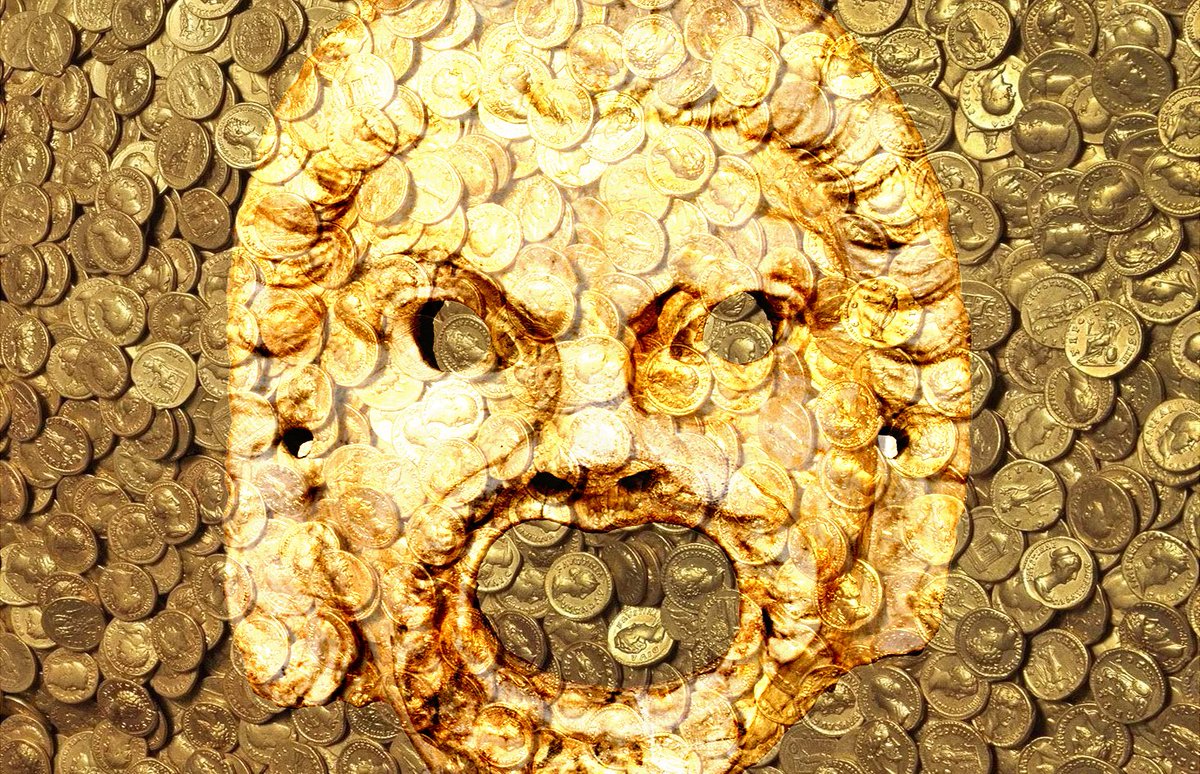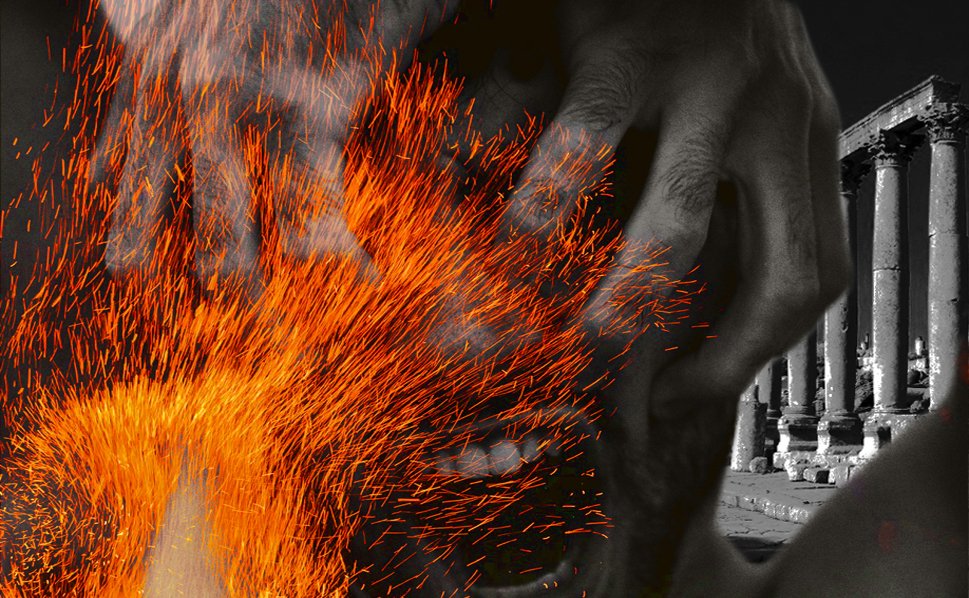
1) We have all found ourselves stuck between a rock and a hard place, trapped between the devil and the deep blue sea or caught between the hammer and the anvil. The next time you're in a tricky dilemma, why not try out the ancient version: caught between Scylla and Charybdis.. 

2) In Book 12 of the Odyssey, Odysseus and his crew skirt by the island of the Sirens somewhere along the western coast of Italy. With Odysseus tied to the mast and his men's ears filled with beeswax, they avoid the lure of the Sirens' song, continuing south towards Sicily.. 

3) Soon they come to the Strait of Messina between Sicily and Calabria. Both sides of the narrow channel were guarded by deadly monsters that proved inescapable threats to sailors - who attempting to avoid one, would inevitably come in reach of the other. On the Calabrian coast.. 

4) Scylla - a ferocious, twelve-legged, female monster emerging from a cavern in the cliff - with six heads on long necks, each hoping to carry off a sailor in a triple row of sharklike teeth. From her loins sprouted further heads of ravenous, baying dogs. On the Sicilian side... 

5) Charybdis - a terrifying sea-monster lurking under the waves near the Sicilian shore, directly opposite Scylla's cave. Three times a day Charybdis sucks in seawater creating a violent whirlpool, large enough to swallow an entire ship.. 

6) Approaching the strait, Odysseus follows the earlier advice of Circe and steers closer to Scylla's cave than Charybdis; yielding to the immortal gods and conceding it is "better to mourn for six companions of your ship than to have them all wiped out together.." 

7) Despite rowing with all their might, dreaded Scylla snatches away six of Odysseus' strongest and bravest men "like an angler fishing from a jutting rock". As Scylla slowly devours them at the entrance to her cave, Odysseus is tormented by their agonising screams.. 

8) Having chosen the lesser of two evils, Odysseus and his remaining crew narrowly escape Scylla and Charybdis, landing on the island of Thrinacia, home of Helios' sacred cattle. The monsters have long been evoked to describe the dilemma of navigating two hazardous courses.. 

9) ..Perhaps most famously by Erasmus (1515) quoting an older proverb: "having escaped Charybdis, I was caught by Scylla" - in some situations there can be no escape without some cost. Alternatively, a person might go too far in avoiding one extreme and tumble into its opposite.. 

10) The proverb of Scylla and Charybdis was seen as comparable in meaning to other ancient sayings such as "out of the frying pan and into the fire" and the fable of the hare who jumps into the sea to escape the dog - both allegedly coined by Germanicus! (Greek Anthology, 17) 

11) So the next time you take the narrow path and find yourself stuck between a rock and a hard place, forced to choose the lesser of two evils ..remember the deadly passage of Odysseus through the Strait of Messina, facing both Scylla and Charybdis! 

• • •
Missing some Tweet in this thread? You can try to
force a refresh

























